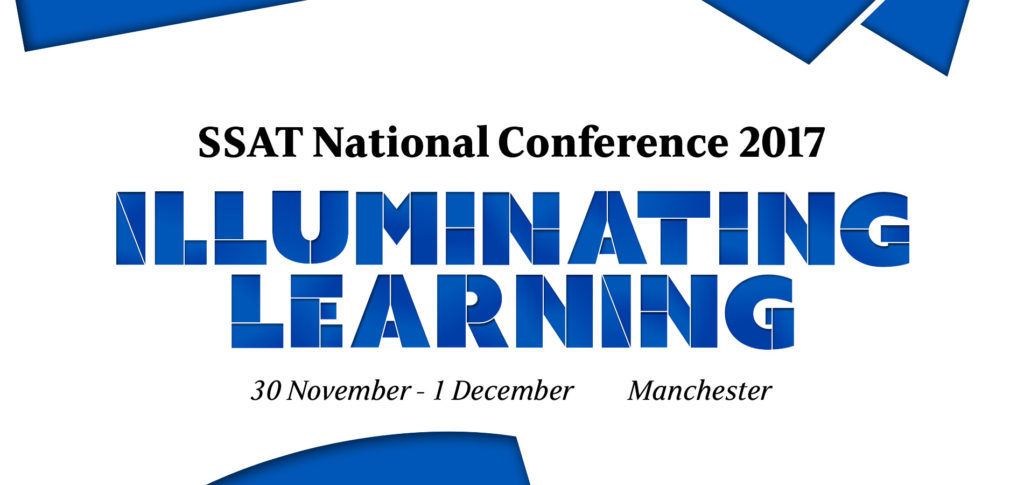
 SSAT National Conference main stage speaker Mark Emmerson describes the ‘really simple strategies’ that have proven hugely successful in his trust’s schools
SSAT National Conference main stage speaker Mark Emmerson describes the ‘really simple strategies’ that have proven hugely successful in his trust’s schools
‘Education theory is mainly about common sense,’ says Mark Emmerson, CEO of City of London Academies Trust. ‘And most of it is about getting the basics right and then working at the margins: what are the mostly small improvements that make your school better? I look for simple things that can make a big difference.’
The trust now oversees four secondary and three primary academies, which work closely with two co-sponsored academies, a maintained primary school, and three independent schools supported by City of London Corporation.
‘The first principle is that everything has to be really simple and clear. There’s so much opportunity in schools for things to go wrong through over-complicating it all. So a lot of improvement is about taking stuff away, not adding it,’ Mark Emmerson explains. ‘For example, our performance management system is simply linked to the school’s SIP, which is written on two sides of A4. And heads, in writing the governors’ report, are encouraged to use their SEF, which is updated each term. That’s one task not two, and if Ofsted drops by we have an up to date document for them.
‘There’s so much opportunity in schools for things to go wrong through over-complicating it all… a lot of improvement is about taking stuff away’
‘Taking away bureaucracy releases energy. I don’t want headteachers, or any other staff, to be tied up to computers in offices.’
Other examples of the trust’s simple strategies:
- Progress: the first classroom intervention for poor progress should be to get the child sitting in front of the teacher.
- Literacy policy: ‘pupils are always required to answer in correct English.’
- Numeracy: students first attempt a calculation without a calculator; ‘practising mental methods and improving their number skills.’
Simplifying strategies like these reduce the marginal one-to-three minutes teachers are so often spending on tasks other than teaching, says Emmerson. ‘School leaders are often dreaming up new strategies or monitoring documents, and selling them by saying to teachers, “it will only take you a minute”. Those minutes add up.’
All the trust’s heads share their teachers’ experience: ‘I want our heads to teach an exam subject, so they can experience what a teacher is experiencing. Then they understand the need to minimise workload to maximise impact.’
Heads: see for yourself
On monitoring, he says, ‘so many people fill in pieces of paper, when there’s no need: the evidence is in front of you. Something on paper is a snapshot in time, when you need to be constantly out there looking for yourself. Why ask a department head to send you a piece of paper about what’s going on in the classroom next to you?’
Senior leaders regularly visit classes to see whether the trust’s five ‘foundations of excellence’ (see figure) are being followed. ‘It’s not about catching people out. If there are gaps, we tell the teacher and the department head, give it a week to get sorted, then come back and have another look. There’s a lot of checking going on. You’ve got to get honest feedback on what’s going on. It’s about regular, low-stakes interventions, not a one-off, high stakes, performance management visit.’

‘It’s all really simple stuff,’ Mark Emmerson maintains. ‘I’m not the best teacher, not an intellectual, but I know what has an impact on teaching which benefits the students and generates really great outcomes.’ (City of London Academies had the highest average P8 score of any chain in the country in 2016, according to TES.)
It sounds simple, yet in practice ‘you have to work really hard to try to divert attention from things that are not important or impactful. Teachers can take ages planning lessons which are not driving the kids forward. Creative teaching and engaging learning doesn’t have to be heavy on preparation.
‘For example, I teach economics GCSE, which requires a lot of factual recall which many students find boring. Instead of students having to wade through economies of scale in great detail, one set of students can write a factsheet about economies of scale while others do one on diseconomies of scale, and then they swap. I’ve not really had to do much, but you get more engagement from the students and they learn better. They end up ready for the next challenge.
‘The cornerstone is leadership, with simple deliverable systems, low-stakes but high gain. Marginal changes, which give back time to teachers and school leaders to do their real jobs.’
Mark Emmerson is speaking on the main stage at the SSAT National Conference on Friday afternoon. Read more in the NC17 blog series:
- The Chartered College of Teaching: on the cusp of change for the profession
- How a frustrated teacher became an expert in educational psychology
- Courageous leadership and the school curriculum
- How breadmaking can illuminate learning
- What has Hillsborough to do with school leadership?
- What does excellence mean as a school leader?
Book your place at SSAT National Conference 2017: Illumination learning
